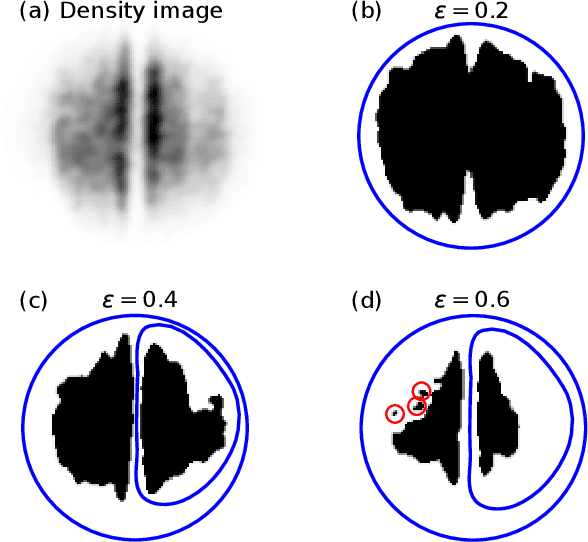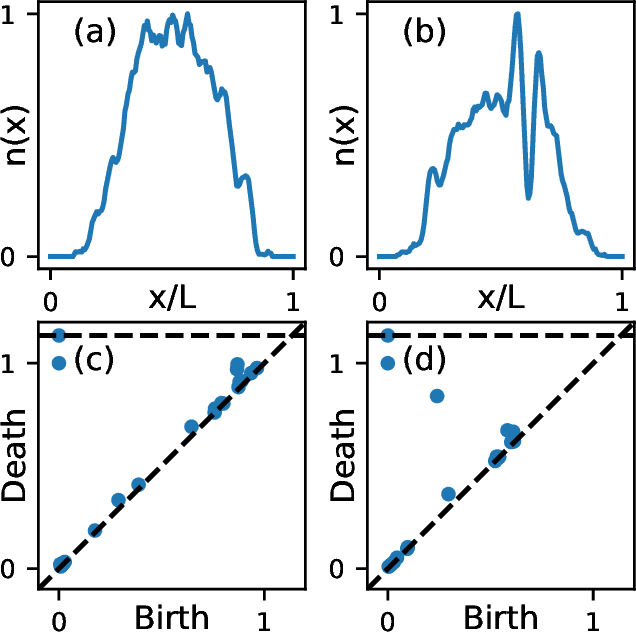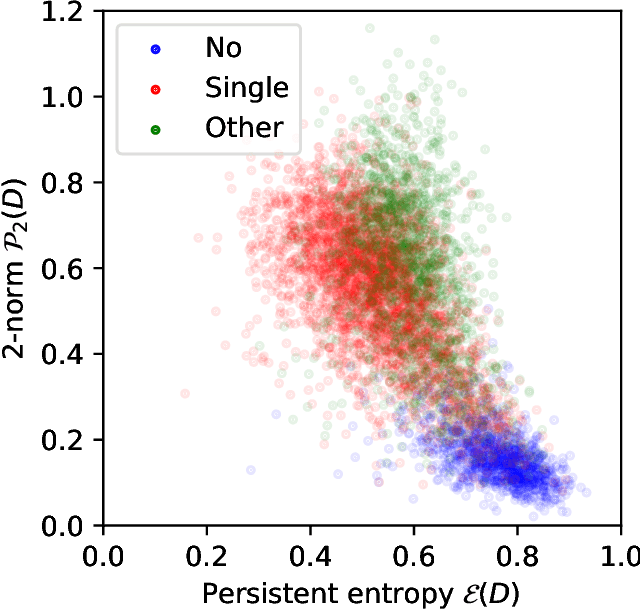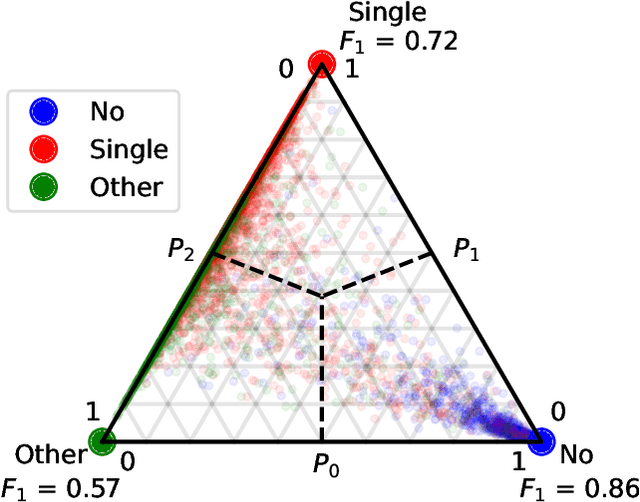Irving Rondon
Dark soliton detection using persistent homology
Jul 21, 2021



Abstract:Classifying experimental image data often requires manual identification of qualitative features, which is difficult to automate. Existing automated approaches based on deep convolutional neural networks can achieve accuracy comparable to human classifiers, but require extensive training data and computational resources. Here we show that the emerging framework of topological data analysis can be used to rapidly and reliably identify qualitative features in image data, enabling their classification using easily-interpretable linear models. Specifically, we consider the task of identifying dark solitons using a freely-available dataset of 6257 labelled Bose-Einstein condensate (BEC) density images. We use point summaries of the images' topological features -- their persistent entropy and lifetime $p$-norms -- to train logistic regression models. The models attain performance comparable to neural networks using a fraction of the training data, classifying images 30 times faster.
 Add to Chrome
Add to Chrome Add to Firefox
Add to Firefox Add to Edge
Add to Edge